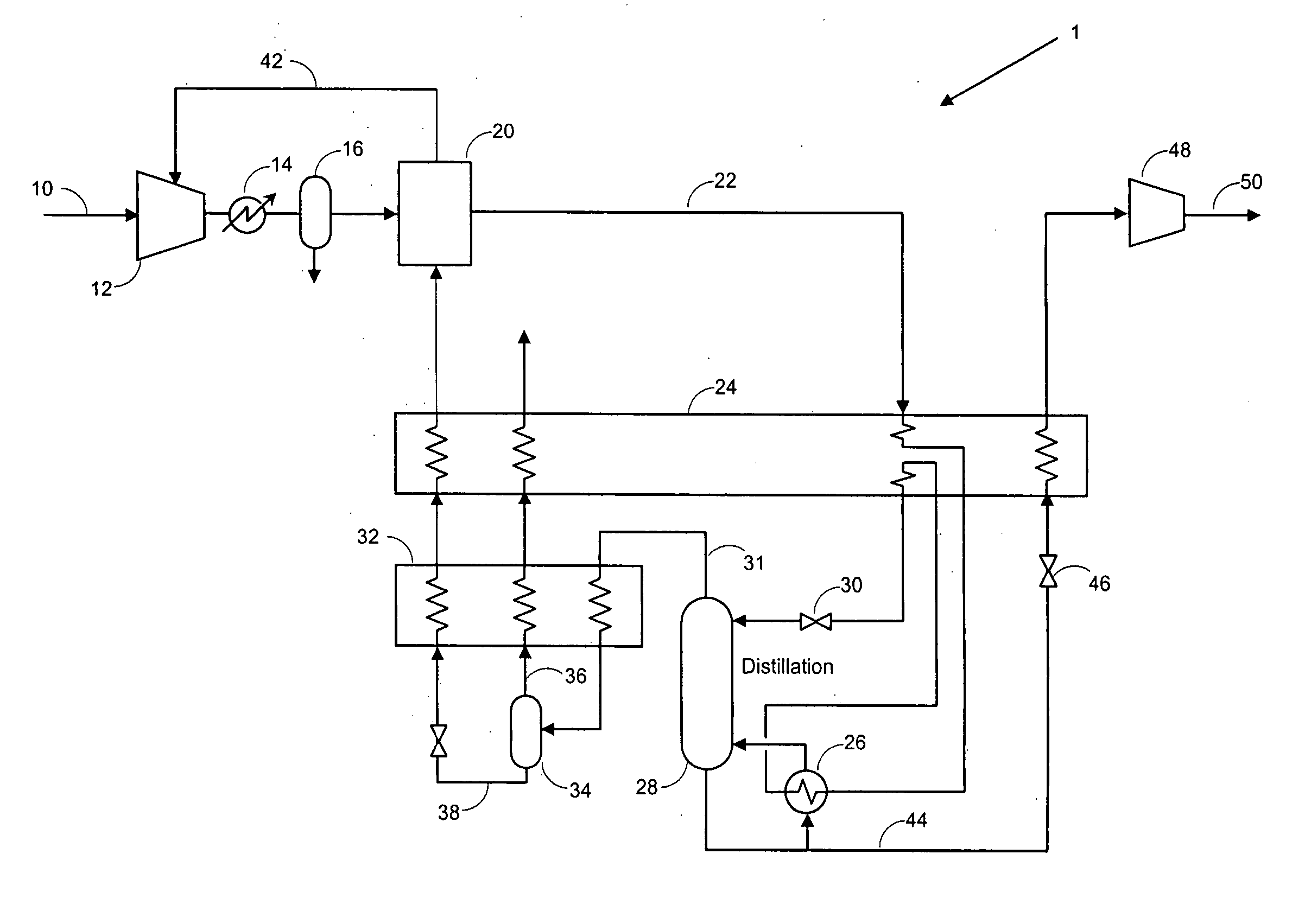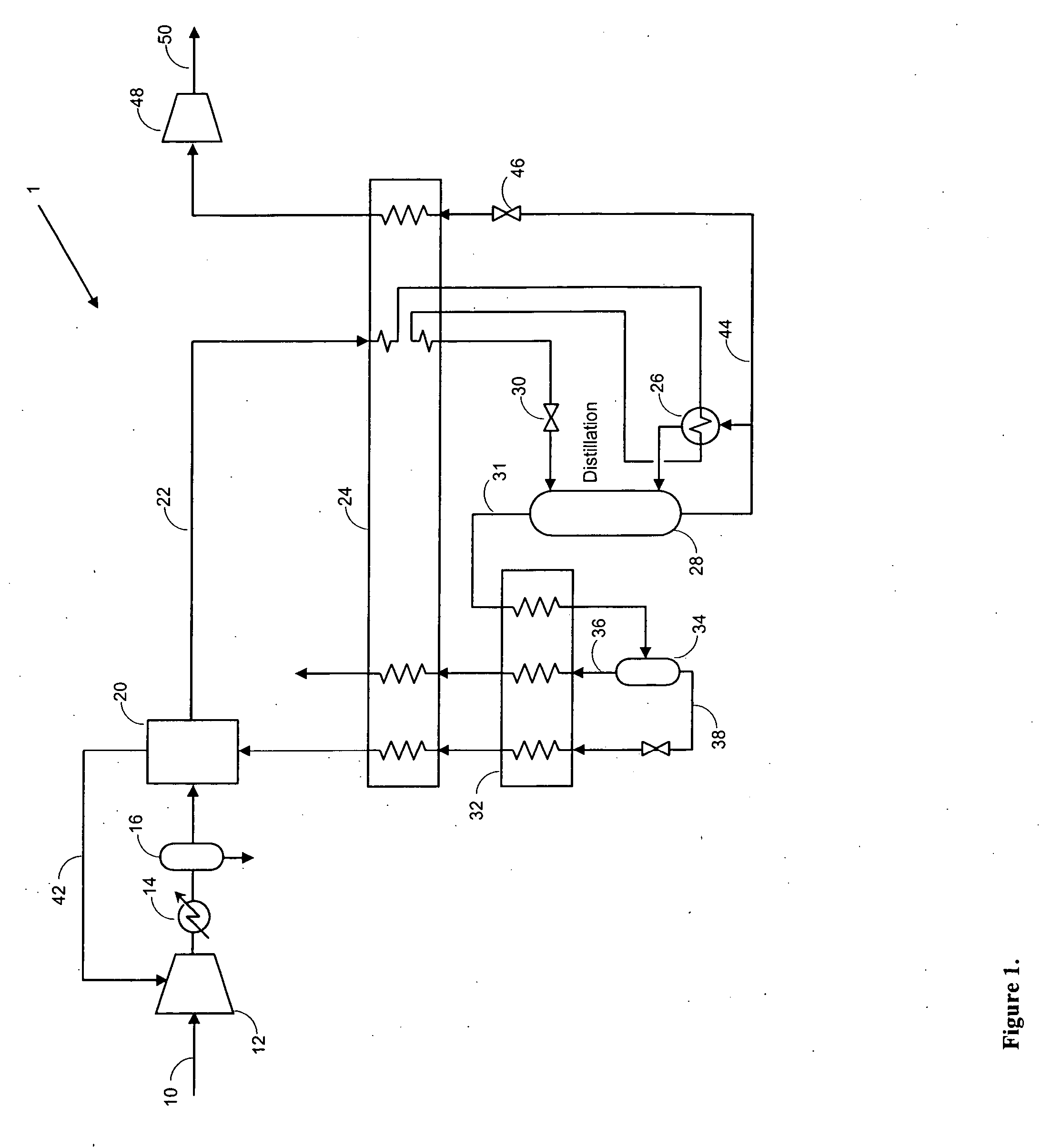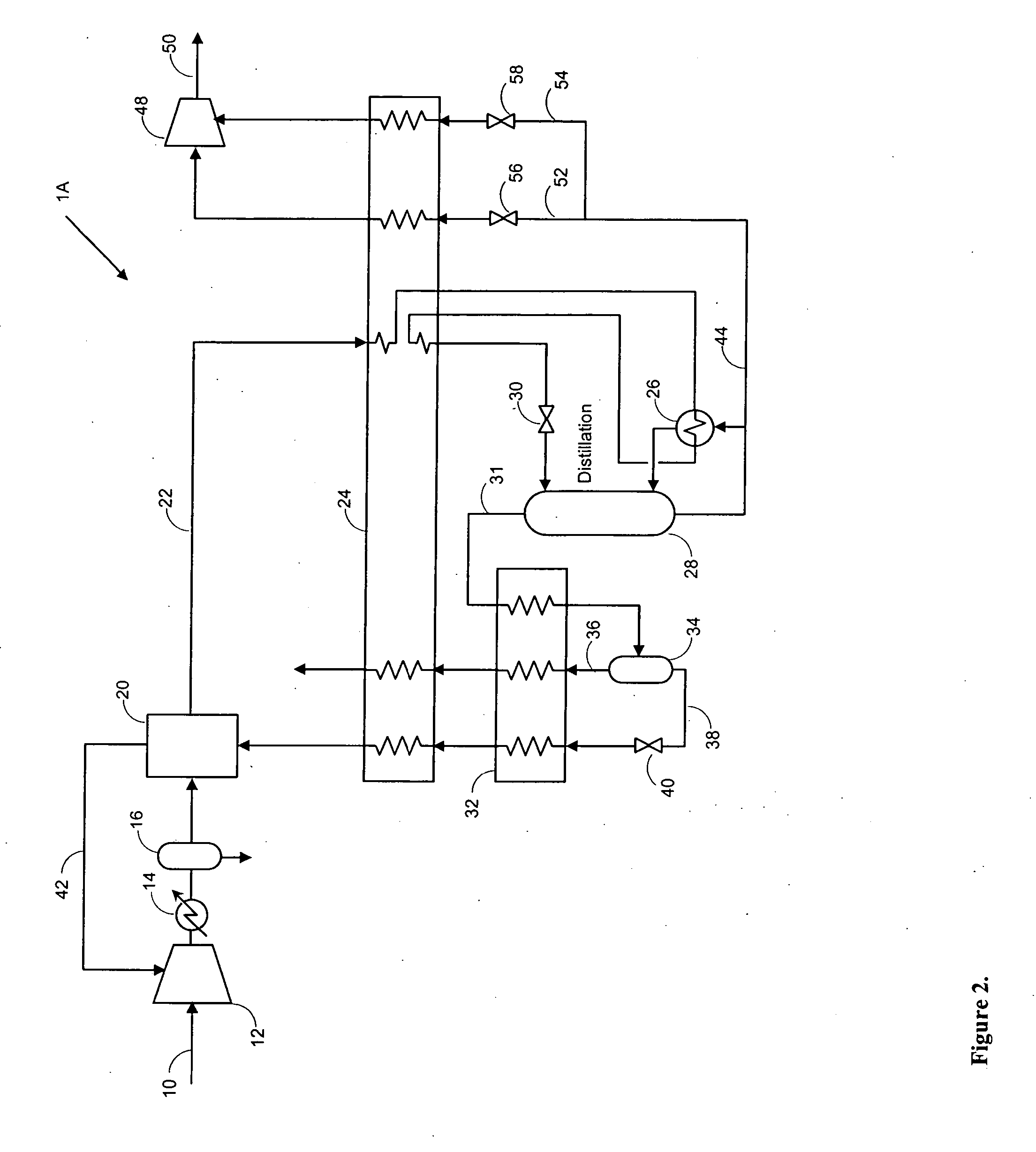Carbon dioxide purification method
a carbon dioxide and purification method technology, applied in liquid degasification, separation processes, lighting and heating apparatuses, etc., can solve the problems of increasing the electrical power cost associated with compressing the stream, increasing the electrical power costs associated with the stream compression, and sulfur oxides and nitrogen oxides are particularly undesirable impurities, so as to reduce the energy required, reduce the overall process, and reduce the effect of refrigeration
- Summary
- Abstract
- Description
- Claims
- Application Information
AI Technical Summary
Benefits of technology
Problems solved by technology
Method used
Image
Examples
example 1
[0044] In the following example, feed stream 10 is a recycled gas from an enhanced oil recovery facility with the objective of removing methane and nitrogen from such recycled stream before re-injecting it in the oilfield. The embodiment illustrated in FIG. 1 was used for purposes of this Example. The target methane level in this example is 100 ppm in the recovered carbon dioxide and the recovery was about 93.5 percent by volume. As a result of purification, components undesirable for enhanced oil recovery, such as methane and nitrogen were removed, while C(2)+ hydrocarbons were largely retained in the recycled carbon dioxide stream. The pressure of compressed carbon dioxide stream 50 can be set depending on the reservoir pressure requirement for re-injection of the carbon dioxide. The carbon dioxide depleted stream 36 containing methane and other hydrocarbons can be sent to further processing to recover natural gas for sale. Tabular results for this example are given in Table 2.
T...
example 2
[0046] In this example, the objective is to remove oxygen, nitrogen and argon from the feed stream 10, which in this case is formed from oxy-fuel combustion flue gas, to produce purified carbon dioxide stream for EOR or sequestration. It is preferred to reduce oxygen concentration to 10 ppm or less and that was used as the specification for purification. The embodiment shown in FIG. 2 was used and the carbon dioxide recovery of about 86.5 percent on a volume basis was obtained. The carbon dioxide depleted stream 36 can be heated and then expanded for power recovery before venting to atmosphere. Tabular results are given in the following Table 2.
TABLE 2Stream102252543638Flow,1000010000404926993252720lbmol / hTemperature,959555555555° F.Pressure,14.7700180340445135psiaComposition(mol % drybasis)CO2787899.987399.987332.495.2O2550.00100.001015.31.2Argon440.01150.011512.31.4N213130.00020.000240.02.2Stream102252543638Flow,1000010000404926993252720lbmol / h
[0047] In Table 2, the physical pro...
PUM
| Property | Measurement | Unit |
|---|---|---|
| Temperature | aaaaa | aaaaa |
| Temperature | aaaaa | aaaaa |
| Electrical inductance | aaaaa | aaaaa |
Abstract
Description
Claims
Application Information
 Login to View More
Login to View More - R&D
- Intellectual Property
- Life Sciences
- Materials
- Tech Scout
- Unparalleled Data Quality
- Higher Quality Content
- 60% Fewer Hallucinations
Browse by: Latest US Patents, China's latest patents, Technical Efficacy Thesaurus, Application Domain, Technology Topic, Popular Technical Reports.
© 2025 PatSnap. All rights reserved.Legal|Privacy policy|Modern Slavery Act Transparency Statement|Sitemap|About US| Contact US: help@patsnap.com



